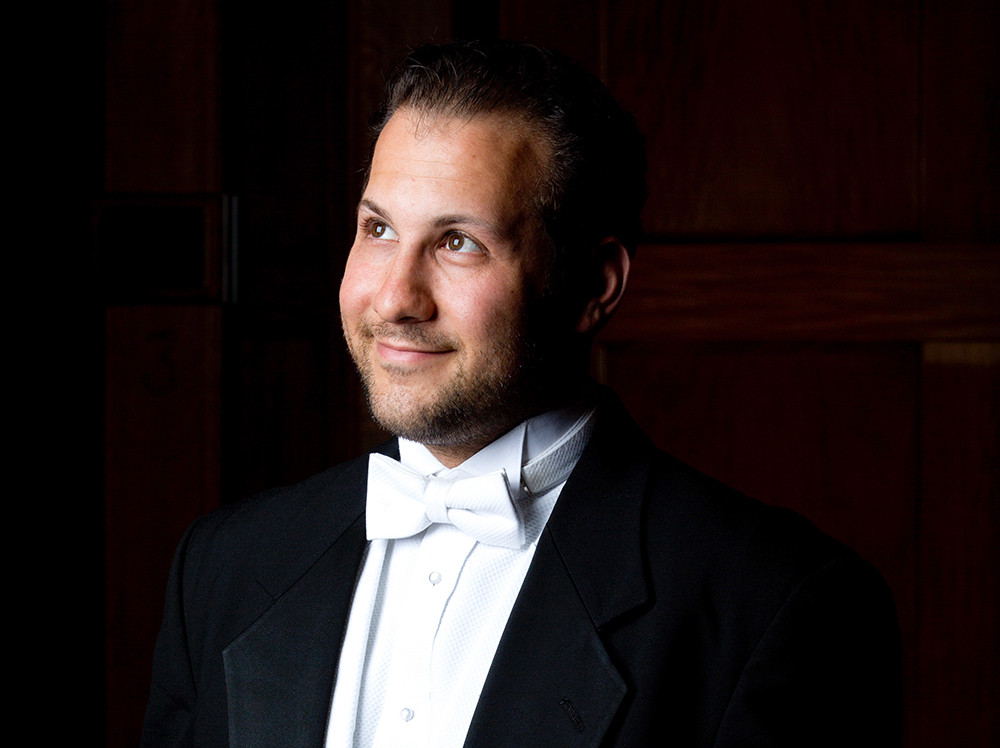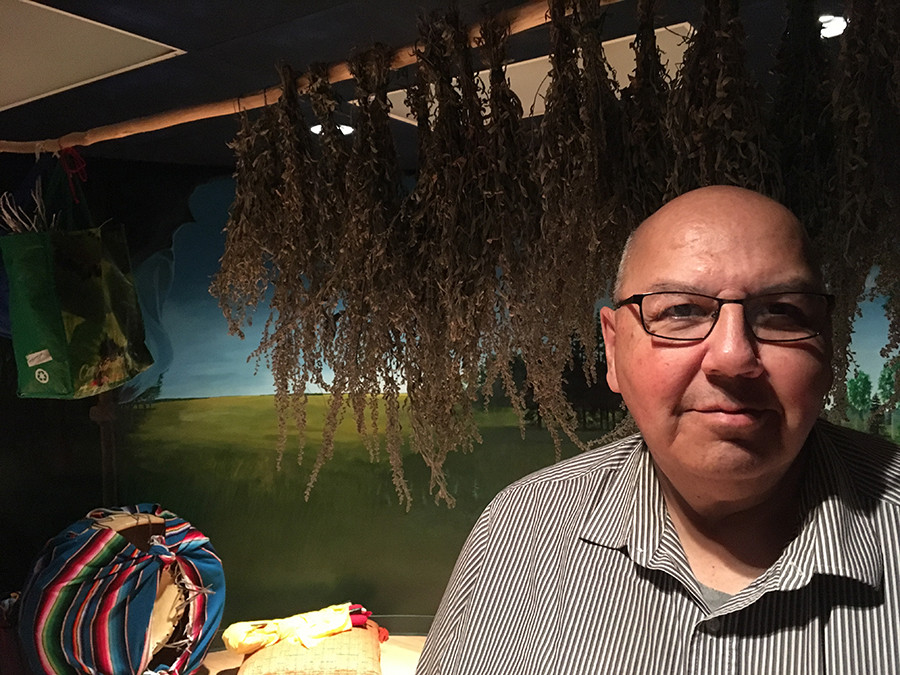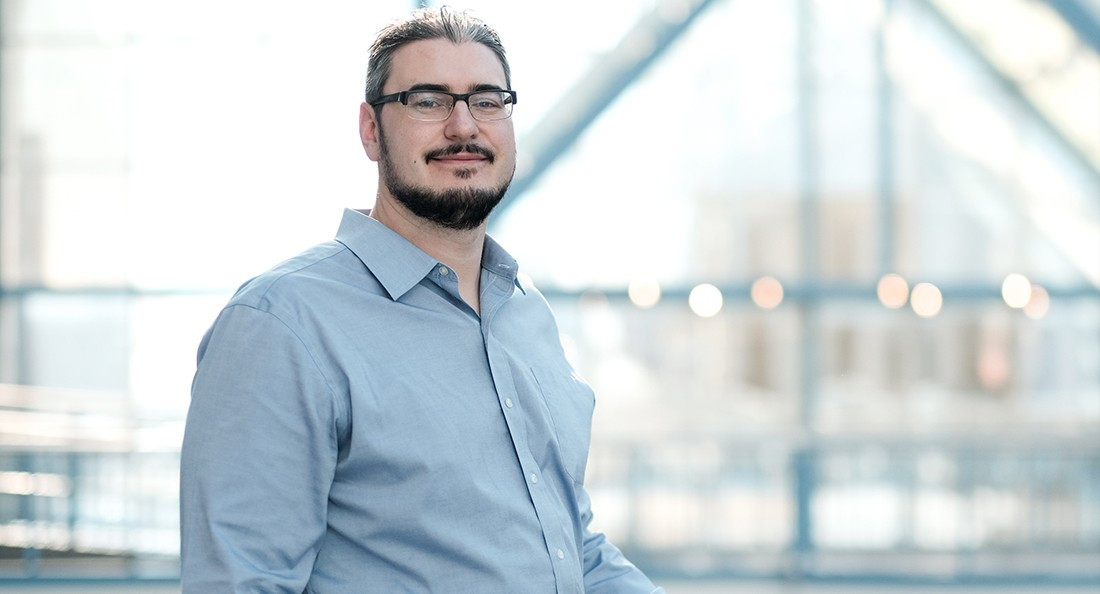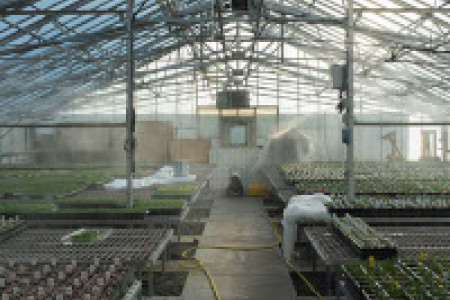Listen harder
Active listening as a path to understanding ourselves, each other and the world around us
Society at large places a greater value on knowing rather than on asking, on speaking rather than listening. The world rewards performance, not observation. Without the grout of critical understanding, however, the foundations of personal and societal wisdom begin to crumble. Stable growth is
impossible.
What can be done when the din of soundbites and buzzwords drowns life’s nuance out of earshot?
Listen harder.
Combatting internal chaos
Understanding one’s own experience – let alone that which lies outside of it – can be challenging. So many factors influence how a person listens and reacts to the world around them. One’s environment, cultural climate, learned behaviours and traumatic experiences can calcify internalized and performative response patterns, which can, at times, prove toxic to the self and its surroundings.
Robert Plese, a therapist at Aulneau Renewal Centre, offers that there is hope for inner peace or, at least, some semblance of balance.
“We all have the potential to grow, learn and adapt. The brain can only do this if it can openly hear and communicate what is happening to itself, with others and also comfortably make space for the feedback,” Plese says.
Without the skill of listening, messages that don’t match a person’s perspective can’t get through. “Clients (who) cannot listen to themselves, because of how their memory is seeking to construct itself, will struggle to let you communicate with them in a way that is different from what they want to hear.”
In his four years practising at Aulneau, Plese has worked with individuals, couples and families seeking solutions to the challenges they face in everyday life. He sees bottling up emotions as the source of a great deal of destructive
behaviour.
“Consider that your emotions are often a response to internal conflict over multiple thoughts or concerns. Be patient with yourself and try not to rush out of the feelings. See if you can do something kind for yourself and do your best to identify the root of this feeling,” Plese says.
“Buy yourself space and time to be with the feeling, and with kindness start to connect those feelings to the thoughts or body feelings that produced them.”
The level of vulnerability this process demands can be intimidating, but Plese says the potential for personal growth is worth the risk. When an individual can objectively assess their own actions and decipher behavioural patterns, their external empathetic barometer can also be calibrated.
“Learning to be self-compassionate with regards to your thoughts and the interpretation of thoughts will help you be compassionate to others. These building blocks to self-compassion will help you actively listen to others. Once you can give yourself that permission, you will let others express themselves, too.”
Plese says that developing an openness to the experiences and perspective of the outside world will only encourage the ever-evolving journey toward self-awareness.
“Listen to the shared and collected wisdom of others, promote collaboration, inform corrections, elicit support and create the conditions for safety and rest. Active listening is a challenge to us and one that expands past our inner and outer barriers into being wholly a therapeutic person and therapeutic society.”
Creative listening
Tapping into creative languages can reveal the nuance of how humans have attempted to digest and express their experiences. Historical events, geographical places, legends, fairytales and personal truths are painted in sonic landscapes.
Julian Pellicano, resident conductor of the Winnipeg Symphony Orchestra (WSO), explains the challenge of symphonically sculpting representative gestures.
Julian Pellicano is the resident conductor with the Winnipeg Symphony Orchestra. // Supplied
“When the Christmas tree grows in Act I of The Nutcracker, you have to shape the music so that the motion and direction of the sound culminates with the action on stage. It can’t be flat, and it must grow exactly like the tree.”
“During the murder that occurs at the very end of Leoncavallo’s opera Pagliacci, how do we manipulate our instruments to create a sound that is a perfect musical reflection of this gruesome and horrifying scene – a sound that goes beyond the black dots on the page?”
Pellicano’s interpretive decisions are informed by “drawing upon a kind of cultural memory that I like to imagine has been passed on us by our ancestors.”
“Our best work is done when we are completely in the moment, being completely present, just listening to the actual sound being produced by the other musicians, not being influenced by our inner musical monologue,” he adds.
As a listener, Pellicano savours the moments when he can be so immersed in a listening experience that his reality can be suspended.
“Listening to professionals like my colleagues in the Winnipeg Symphony, but also bands in clubs, or even an amateur church choir with not quite enough tenors – it’s all about the experience and what you are perceiving,” Pellicano says.
Not every listening experience can be so transcendent. Pellicano admits that it’s not always the fault of the sound-makers.
“Sometimes, maybe I’m just not in a good mood or there’s something disturbing or distracting me, and it just doesn’t work. I always try to remember that for someone else in the room, it could be the complete opposite.”
An alumnus of the Royal College of Music in Stockholm, Sweden and the Yale School of Music in New Haven, Conn., Pellicano was largely self-taught before entering the world of academic music. In addition to his work with the WSO, his aural instincts lead the hungry minds of the University of Manitoba Symphony Orchestra to collaborative unity as their director and professor.
“Active listening is humbling. It forces us to be quiet, and take something in. We receive something from another human being when we actively listen, whether it be to music or someone talking. If you just go to a forest, sit down and listen, you will receive something from plants and animals, the earth and the atmosphere through your ears. How amazing it that?”
Pellicano is still enchanted by the world of sound, but he acknowledges how difficult it can be to completely resign to it.
“We spend so much of our time taking and using and consuming. Listening requires us to surrender these necessary parts of our human nature and just allow ourselves to not be in control, which is, once again, not easy.”
Listening to survive
This month, the Supreme Court of Canada ruled that lawmakers were not legally obligated to consult with First Nations when shaping new legislation that could affect environmental protections and treaty rights. The argument made was that parliamentary supremacy would be compromised by listening to Indigenous leaders and their communities before passing new laws, even as the climate crisis continues to worsen.
The Canadian government has struggled to hear the wisdom of the ancient culture that lived in symbiosis with this landscape for centuries before the colonists’ arrival.
The 1969 White Paper, an attempt at plans for reconciliation penned by then-Prime Minister Pierre Trudeau and then-Minister of Indian Affairs and Northern Development Jean Chrétien, states “As all partnerships do, this will require consultation, negotiation, give and take, and co-operation if
it is to succeed.”
This partnership, however, has been gravely imbalanced.
Elder Albert McLeod's ancestry is from the Nisichawayasihk Cree Nation and the Métis community of Norway House. // Photo by Sarah Jo Kirsch
Trudeau and Chrétien’s perspective was focused through the lens of their own experience. The White Paper’s intention was rooted in cultural assimilation. The Canadian government’s priority was not in listening to and empathizing with the experience of the Indigenous population or finding a way to comprehensively reconcile its systemic marginalization.
Elder Albert McLeod recounts how the superimposition of western European cultural and religious systems began subverting the existing embedded ecological consciousness of Indigenous peoples of Canada in the late 19th century.
“Land was opened up, Indigenous people were moved onto reserves, the bison were exterminated. That’s only 150 years ago. We now live in this environment we’ve constructed that has alienated us from nature,” McLeod says.
McLeod’s ancestral history lies in the Nisichawayasihk Cree Nation and the Métis community of Norway House. He was recently awarded an honorary doctor of laws from the University of Winnipeg for his extensive research and activism in local and continental Indigenous 2LGBTQ+ community building.
According to McLeod, a historical lack of empathy towards the environment and the life within it is what has lead humanity down a self-destructive path.
“When you deconstruct that past, it really gets us to reflect (upon) our idea about progress. Technology … has potential, but if it’s not connected to the land or the continuation of land, it’s not helpful, because there’s no control.”
Totalitarian agricultural has devastated the diversity of natural plant and animal species while industrial runoff and chemical spills continue to compromise clean water sources. As the global temperature rises, Elder McLeod suggests these devastating natural repercussions could have been avoided by listening.
“The legacy of colonization is so blind that you create this one agricultural plant that takes up so much space, and there are no squirrels, snakes, birds. It’s just a vacuum of sterilized land ... You can’t just keep extracting natural resources without ... expecting any consequences.”
Of the many highly stylized rituals in Indigenous culture focused on actively listening to the spirits of the earth, McLeod describes the significance of a traditional pipe ceremony. Seven forces are invoked: the four directions, the earth, the sky, and finally, humanity – this hierarchy illuminating humankind’s role as a ward of the earth, not its dominator.
“We are part of this experience, but we’re not the experience. We’re highly dependent on nature, not the other way around. Nature doesn’t need us.”
McLeod urges that collective consciousness reject colonial hubris and return to compassionate humanitarian values.
“A lot of these social structures we have are about superiority of knowledge, science, technology, but not humility. As society draws closer to Indigenous cultures, it will be that teaching of humility that will open their eyes and ears.”
Active listening
There is great humility in listening beyond the need to communicate. It takes patience and compassion to understand one’s own inner monologue or the filtered narrative of others. To hear past words spoken and into the source of their genesis demands conscious engagement.
Pellicano remarks “Everyone needs a voice in a conversation, but a voice is only relevant if there are ears listening, actively listening.”
Listen. The world is saying something.
Published in Volume 73, Number 7 of The Uniter (October 25, 2018)





